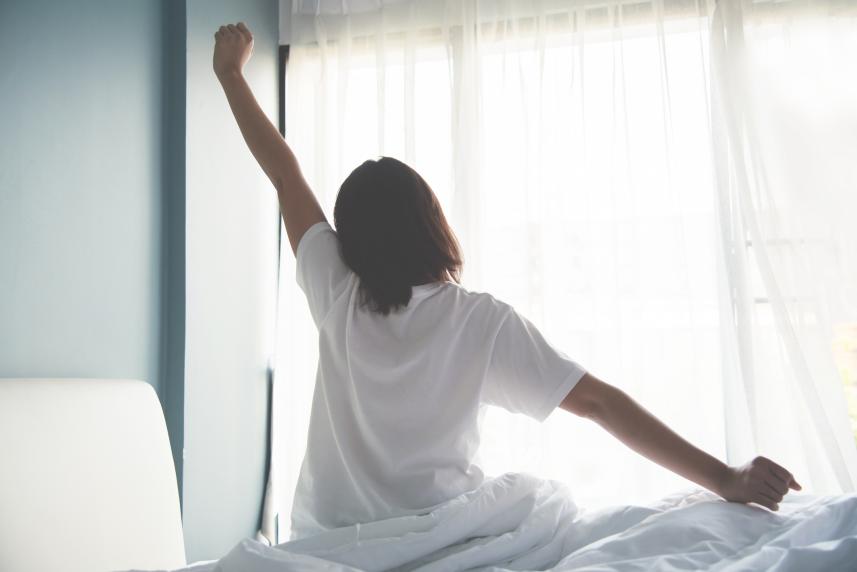Six tips for better sleep
It’s vital for good health, but getting quality sleep is not always easy. Boost your chances of a good night’s rest with these tips.

Getting the recommended seven to nine hours of sleep per night is not as easy as it sounds. In fact, so many American adults reported not getting enough shut-eye, that in 2014, the Centers for Disease Control and Prevention declared lack of sleep a “public health epidemic.” This is because sleep is essential for both physical and emotional well-being. It helps you function better during the day, and it can also help reduce the risk of heart disease, obesity, type 2 diabetes, and stroke.
So what can you do to ensure you get a good night’s rest? Try these tips to help you improve the quantity — and quality — of the sleep you get.
Have a regular bedtime
Whether you are an early bird or a night owl, aim to go to bed at the same time every night and wake up at the same time every morning—even on weekends and vacations. This helps regulate your body’s internal clock, which can help you fall asleep and stay asleep. If possible, also try to avoid napping during the day.
Go to bed only when you’re tired
If you feel too awake, you might not fall asleep easily. If you aren’t asleep after 20 minutes, get out of bed and leave the bedroom. Try doing something relaxing such as reading or listening to quiet music.
Establish a relaxing bedtime routine
Use the hour before bed to create a relaxing bedtime routine. This could involve something like reading before going to sleep or taking a warm bath. Turn off electronic devices at least a half hour before bedtime. Getting texts disrupts your ability to relax and get to sleep. Gazing at bright screens, including laptops, phones, tablets, and televisions, may make it harder to fall asleep—the particular type of light their screens give off keeps your brain more active.
Optimize your sleeping environment
Use your bed only for sleep and sex. Avoid taking your laptop into bed and doing work, or your brain might start to think of the bedroom as a place of stress.
Make your bedroom a restful and quiet space. Keep the room at a comfortable, cool temperature, and make sure it’s dark before you try going to sleep. Use blinds over the windows to keep out streetlights. Consider using earplugs to make things even quieter.
Avoid eating late or having stimulants close to bedtime
Eating a big meal within three hours before bedtime may cause your metabolic system to start working and make it harder to fall asleep. If you are hungry close to bedtime, opt for a banana or a warm glass of milk. And steer clear of caffeine late in the day. Caffeine is a stimulant that can keep you awake. Also try to avoid drinking alcohol within six hours of bedtime. While alcohol appears to have a relaxing effect, it actually may contribute to poor sleep quality.
Exercise regularly
Regular exercise can help you fall asleep more easily and sleep more soundly. Try to exercise at least three hours before bedtime so that your body has time to wind down.
If you’re still having trouble sleeping, make an appointment with your health care provider. Record your daily bedtimes and routines in a sleep diary, as this can help with the evaluation of your sleeping habits.


